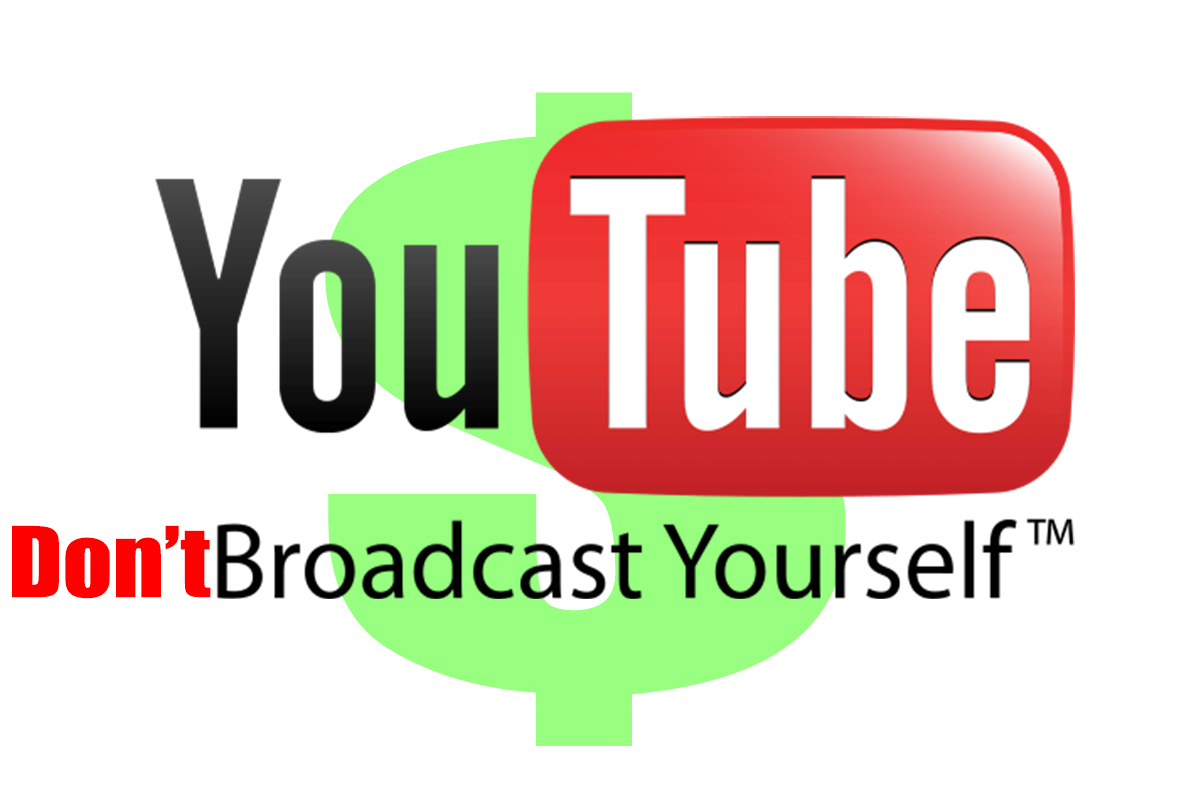YouTube content creators protest restrictions

YouTube started as a platform for people to become content entrepreneurs, even sporting the motto “Broadcast Yourself.” However, recently it has been accused of censoring and suppressing legacy creators.
One of YouTube’s biggest creators, Jesse Tyler Ridgway, known by his username, “McJuggerNuggets,” released a 50-minute video, Oct. 18, announcing he will leave the platform on Jan. 1 in favor of StoryFire, a platform he founded alongside Hollywood director and actor, Brian Spitz.
Ridgway, who has been on YouTube for 13 years, and Spitz founded StoryFire after what they say are strict and abrupt policy and algorithm changes aimed at pleasing advertisers.
The changes include rapid demonetization and removal of content, viewer and subscriber suppression, artificial intelligence, and a strict algorithm.
Ridgway said he’s grateful for what YouTube gave him, but said it became “so systematic and so corporate that I feel like the heart is gone.”
“I want the heart to come back to YouTube,” he said, adding that he feels it never will.
StoryFire started as a platform for creators to tell scripted stories, but after hearing of creators suffering on YouTube, Spitz and Ridgway opened the platform for video content. Since then, StoryFire has attracted Lance Stewart, Boogie 2988, Kidbehindacamera, Jeff Saxton Vlogs and Daym Drops from YouTube. The platform has been trending on app store charts for months.
Ridgway has slowly shifted content from YouTube, but due to the fact he can curse, film his own content, be compensated for his art and still be supported by StoryFire’s ad revenue, he is going all in for StoryFire. Ridgway said YouTube forced clickbait and heavy-handed AI on him, as well as shifting his content to please an algorithm.
Between 2012 and 2016, Ridgway created “The Psycho Series,” a coming-of-age story about a character, called Ridgway, who wants to be a YouTuber. The character’s father breaks items to prevent him from pursuing his dream. Ridgway attracted 17 million views over the course of 684 videos, for a revenue of $2,223,667.25, and a watch time equivalent of 11,494 years and 39 days. Ridgway said those numbers would not be possible under YouTube’s current policies and algorithm.
YouTube removed and/or demonetized 500 of Ridgway’s videos without warning, cutting advertiser revenue. This means videos on his channel will not be recommended. Ridgway’s revenue dropped 90 percent as a result. A YouTube representative who appeared on Ridgway’s Twitter — his face blurred — said kid-friendly and advertiser-friendly content is more likely to get recommended than content that may be controversial.
Guidelines on YouTube Premium, which is a subscription service, go against regular YouTube guidelines regarding violence, gore, cursing and sexual themes.
“I created a 20 episode ‘highly produced’ series which was exactly what YouTube was going for with YouTube Premium,” Ridgway said. “I thought this was a great opportunity. Wrong.
“They demonetized every episode of the series, even age restricting the pilot. I lost upwards of 30- and 40-thousand dollars in the budget for that series, and I also received no support from the platform after I brought them millions of dollars from all my previous content.”
YouTubers RackaRacka claim YouTube hides content. After a search, they showed their Mortal Kombat video was nowhere to be found, even on an 18-plus account. YouTube’s self-monetization tool does not allow video game violence, and restrict creators from making money on the platform. Cartoon violence is allowed but some cartoon violence may be considered realistic. As a result, much gaming content has moved to Amazon’s Twitch, Microsoft’s Mixer and D Live.
When YouTuber PewDiePie said the N-word on a livestream, it caused what has been dubbed the “adpocolypse,” where advertisers pulled out, causing revenue to plummet about 90 percent for creators, Ridgway said, adding that YouTube sided with advertisers, and YouTubers are furious at the decisions.
New users only see Hollywood content and kid- and advertiser-friendly content on their home and trending pages. The top 10 channels are corporate, mixed in with kid-friendly channels. Creators such as PewDiePie are marginalized.
Ridgway receives roughly 10 million views a month and makes $10,000. Another creator with the same number of views, Graham Stephan, makes $100,000 a month, despite Ridgway saying he made “clean” content for a year and a half.
The advertisers one can get on one’s channel depends on content. YouTuber MatPat showed the rating system in a video, which consists of G for general audiences, PT for parental guidance, T for teen and older audiences, and M for mature audiences.
“My channel is not making as much as other channels because they have labeled my channel as mature and this is under the hood,” Ridgway said.
Last year’s YouTube Rewind highlighted celebrities instead of creators and became the most disliked video on YouTube.
Ridgway recently created a second channel under his full name, Jesse Tyler Ridgway — separate from McJuggerNuggets — which reached 10,000 subscribers on the first day. Almost immediately after, his subscriber numbers dropped by half. Ridgway said he believes YouTube suppressed his numbers.
News and commentary channels are impacted negatively when the algorithm does not detect context, with some videos and channels being labeled as hate speech.
YouTuber Nerd City has discovered a list of 15,000 words that the algorithm searches for in content that can cause demonetization. This has affected content as diverse as LGBTQ and conservative channels.
Channel names are also affected. YouTuber Kidbehindacamera posted a video with Lance Stewart and McJuggerNuggets in the title. The number of views was low, but as soon as he removed the names, views shot up.
Channel names that sound like inappropriate words can also be suppressed. Rob Dyke and Jesse Cox were forced to change their channel names on due to being picked up the wrong way on the algorithm.
Creators urge YouTube to change their policies or they will move their users to different platforms. They say, enough is enough. How YouTube responds will shape the future of online content.
